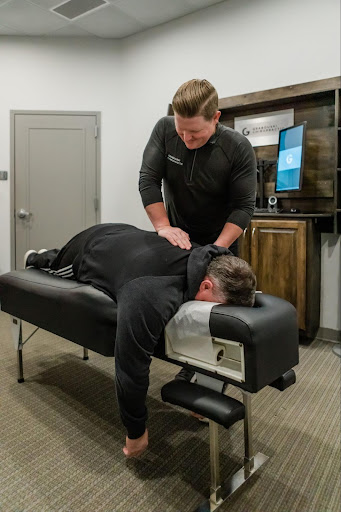
Accidents happen, but it’s the aftermath that has the most effect on people’s lives. We recently sat down with Overland Park, Kansas, chiropractor Dr. Justin Grabouski to find out the benefits of chiropractic care after a personal injury. Here’s what he had to say.
Q: What, exactly, is a chiropractor?
Dr. Justin Grabouski: A chiropractor is a healthcare professional trained to treat the spine and nervous system. We practice a form of complementary medicine that can help ease people’s reliance on pharmaceuticals. Chiropractic care after personal injury might include helping to relieve pain from the back, neck, legs, pelvis, shoulders, arms, and hips.
Q: Are chiropractic treatments considered noninvasive?
Dr. Justin Grabouski: Absolutely. In our office, we provide gentle, targeted chiropractic adjustments to patients of all ages following accidents to aid the body in healing. We can help with range of motion and reduce inflammation triggered by an impact injury. A chiropractic adjustment following an accident drastically reduces the likelihood of needing surgery down the road to repair damage.
Q: How does chiropractic reduce inflammation?
Dr. Justin Grabouski: Any time you experience an injury, there can be microscopic tears in the tissues surrounding the impact site. Unfortunately, x-rays can’t pick these up on ligaments, tendons, and muscles. When you undergo chiropractic care after a personal injury, each adjustment encourages the body to produce its own anti-inflammatory chemicals. This decreases inflammation and can reduce pain while improving healing time.
Q: What are some symptoms of whiplash that chiropractic might be able to help with?
Dr. Justin Grabouski: Whiplash happens when your head is jerked quickly backwards or forwards. It is common during vehicle crashes, especially when rear ended. Whiplash can cause extreme pain, neck tightness, decreased range of motion, stiffness, jaw pain, and muscle spasms. When you undergo chiropractic after a personal injury, we will evaluate your condition and provide a treatment plan centered on chiropractic care to help you heal.
Q: Are there any long-term benefits to chiropractic care?
Dr. Justin Grabouski: Absolutely. In addition to reducing inflammation to recover from an injury, chiropractic care can also help treat migraine headaches, herniated discs, and vertigo. Ongoing treatments can also help reduce back and neck pain in the long term. Further, chiropractic is safe for people of all ages, meaning that the entire family can visit our office to experience the benefits.
If you’ve been injured in an accident and live in the Overland Park area, contact Grabouski Chiropractic today. The conveniently-located office offers walk-in and same-day appointments. Visit our website for more information!

